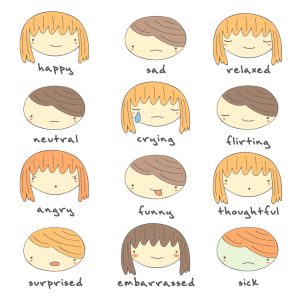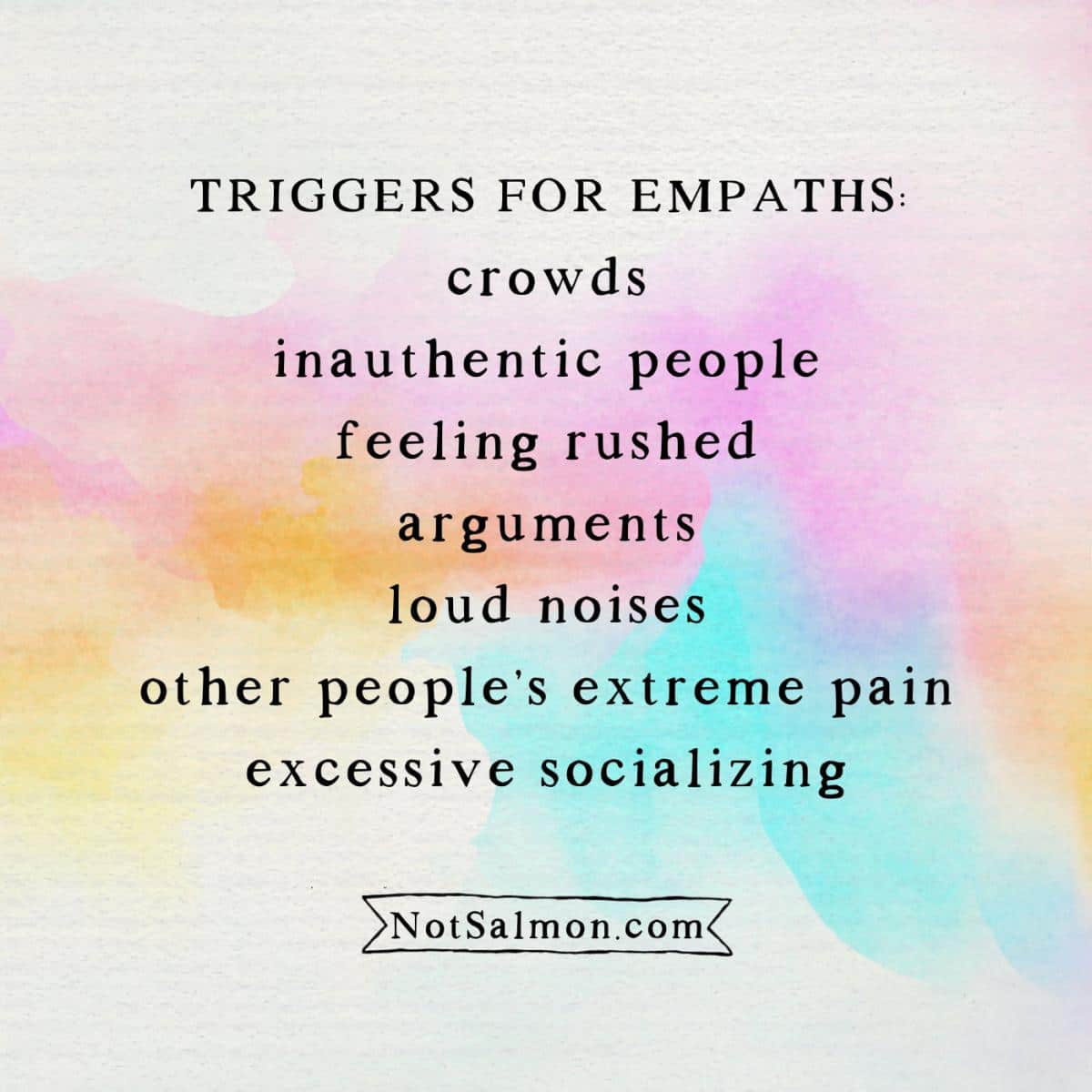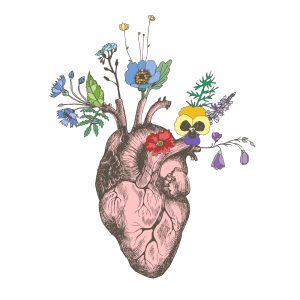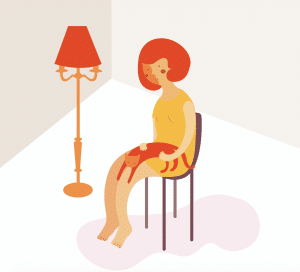 Below are 10 traits of an empath. Read through and you’ll know if indeed you are a true empath – someone who is highly sensitive – and intuitively knows what other people are feeling and thinking.
Below are 10 traits of an empath. Read through and you’ll know if indeed you are a true empath – someone who is highly sensitive – and intuitively knows what other people are feeling and thinking.
Important:
You don’t have to have all 10 out of 10 of traits of an empath to be a true empath.
But the more traits of an empath you have, the more likely you are one.
The Good News About Being An Empath:
Being an empath can be a very beautiful way to live a life – because you’re fully present and deeply connected to others.
The Challenging News About Being An Empath:
Being an empath can also be an emotionally stressful journey – because of your high levels of sensitivity.
Because I recognize that being an empath has its particular challenges, I’ve also included some tools below to help you to better harness your high levels of sensitivity.
The 10 Traits of an Empath
1. Empaths have high levels of intuition and quickly know what others feel and think
One of the main traits of an empath: You’re a compassionate listener. You easily pick up on people’s thoughts and feelings.
Sometimes it feels like “clairvoyance” because empaths can quickly get a “gut instinct” about someone.
For this reason, many empaths are often highly drawn to learn more about spirituality, metaphysics, religion and/or the paranormal – in a desire to better understand how and why they feel the energies of others so deeply.
If you’d like to develop stronger intuition – and really benefit from your empath skills – check out my bestselling video course Develop Stronger Intuition.
 2. Empaths have a strong ability to feel other’s pain, stresses, symptoms, illnesses
2. Empaths have a strong ability to feel other’s pain, stresses, symptoms, illnesses
When empaths are around someone who is angry, tired, depressed (etc) they can easily pick up these negatives feelings and absorb them into their own bodies – mirroring these negative emotions as if they are their own.
As a result, many empaths can feel the burden of other people’s dark emotions and feel drained and exhausted after an encounter with someone who is dealing with a challenging time.
On the flip side…
When empaths are around someone who is happy, loving, peaceful etc, they will similarly take on these positive energies and feel energized, delighted and inspired.
3. If you’re an empath, you can feel overwhelmed and drained in highly close relationships
Another key trait of an empath: A lot of closeness, intimacy and exchange of shared emotions can feel very exhausting to an empath.
They might feel as if they are losing their identity – as if their “sense of self” is being absorbed into the other person and the relationship.
For this reason, empaths need to be sure to give themselves the right balance of closeness and alone time.
Unfortunately empaths are often sought out by narcissists, codependants, and the highly talkative – who crave constant attention and support.
Empaths should do their best to put up strong boundaries with these people – and avoid romantic entanglement with them.
 4. Empaths have intense feelings for wanting to help and nurture people
4. Empaths have intense feelings for wanting to help and nurture people
Empaths are often very loving people who are intuitively drawn to wanting to help release people’s suffering.
For example…
If they see a homeless or injured person they will be eager to help.
Many empaths also choose professions which help people – because they’re naturally wired to want to relieve other people’s pain.
For example…
They often go on to become nurses, doctors, veterinarians, social workers, massage therapists, etc… because they feel an emotional tug to help others.
A reminder if you have this particular trait of an empath
Empaths who get involved in a healing profession should be extremely sure to create healthy boundaries so they don’t feel overwhelmed by the energy of others.
5. Empaths are often told you are “too sensitive”
Empaths can often get their feelings hurt easily – and are thereby often told they are too sensitive.
In fact, empaths will frequently find themselves being told that they should not allow the things that are said to them (or done to them) to affect them so deeply.
Plus because empaths easily take on the heartbreak of others – they might cry at a sad story – which others might perceive as “too sensitive.”
6. Empaths are sensitive to emotional and violent scenes in movies
Empaths often have a challenging time watching movies or videos which are highly emotional and/or violent. They feel the scenes on the screen so fully in their own minds and bodies.
7. Empaths are overwhelmed by parties, crowds, public transportation, hospitals, group therapy, funerals, etc
Empaths are often overwhelmed in crowds of all kinds: subways, malls, conventions, parades, train stations, etc.
For this reason they often prefer to travel by car instead of public transportation and meet with people one-on-one or in limited groups.
They are also sensitive to too much noise. And places with highly strong smells.
Plus empaths have a challenging time in settings which are particularly filled with people in pain: hospitals, funerals, group therapy, etc.
If you need support and tools to feel calmer and more confident – explore my The Anxiety Cure Digital Course.
8. Empaths are more likely to suffer from moodiness
 It makes sense that empaths might experience some moodiness. After all, they are often experiencing extreme highs and lows of emotions – because they take on other people’s emotions so easily.
It makes sense that empaths might experience some moodiness. After all, they are often experiencing extreme highs and lows of emotions – because they take on other people’s emotions so easily.
This constant absorption of emotionality can be taxing on their psyche.
Plus, empaths often wind up wanting to help others so much – they can forget to caretake themselves.
9. Empaths are more likely to suffer from nausea and illness
Many studies report how interconnected our minds and stomachs are. So much so, some studies even call “the gut” a “second brain.”
For this reason…
After an empath absorbs the sadness, or fears or anxieties of other people, they often find themselves feeling nauseous, exhausted or ill.
10. Empaths are more likely to take on addictive behaviors
Empaths feel things highly deeply. And so it makes sense that they might want to find a way to escape from the “emotional bombardment” they feel on a daily basis.
For this reason…
Many empaths will take on an addiction (aka: alcohol, or drugs, or binge eating, or shopping, or sex addiction, etc…)
Their hope: This addiction will numb them and distract them from the overwhelm of their emotions.
How Empaths Can Protect Themselves From Overwhelm
1. Empaths must enjoy enough quiet time and alone time.
 Empaths often find themselves feeling emotional overload, so it’s important they give themselves lots of quiet time and alone time.
Empaths often find themselves feeling emotional overload, so it’s important they give themselves lots of quiet time and alone time.
This can include:
- journaling
- taking a walk
- doing some yoga stretches
- cycling
- enjoying a relaxing shower
- spending time in nature
- practicing meditation. (Check out my bestselling meditation guide, Instant Calm.)
2. Empaths need to speak up about boundaries
If you’re an empath and you feel like someone is draining you, it’s essential you speak up and clearly define your boundaries.
Plus, if you know in advance that parties or events can be overwhelming, let your host know that you will attend – but only for a limited time.
3. Empaths should face up to addictions and moodiness with meditation and positive hobbies
 If you’re an empath and have an addiction or a mood disorder – it’s essential you get help.
If you’re an empath and have an addiction or a mood disorder – it’s essential you get help.
If your problem is at an advanced level, be sure to see a professional who can give you the tools you need.
With that said…
If your addiction and/or moodiness is not at an extreme level, then you can try to let go of your emotional challenges by creating a regular meditation practice.
Meditation is a wonderful way for an empath to master their thoughts and emotions more effectively.
Plus you can also try to swap out your negative addictions for highly “positive addictions” – like a new passion or hobby.
For example…
- knitting
- pottery
- painting
- beading
- hula hooping
- writing
- yoga
- tennis,
- martial arts
Embrace your abilities as an empath…
Check out my bestselling online course Develop Stronger Intuition.
P.S. Before you zip off to your next Internet pit stop, check out these 2 game changers below - that could dramatically upscale your life.
1. Check Out My Book On Enjoying A Well-Lived Life: It’s called "Your To Die For Life: How to Maximize Joy and Minimize Regret Before Your Time Runs Out." Think of it as your life’s manual to cranking up the volume on joy, meaning, and connection. Learn more here.
2. Life Review Therapy - What if you could get a clear picture of where you are versus where you want to be, and find out exactly why you’re not there yet? That’s what Life Review Therapy is all about.. If you’re serious about transforming your life, let’s talk. Learn more HERE.
Think happier. Think calmer.
Think about subscribing for free weekly tools here.
No SPAM, ever! Read the Privacy Policy for more information.
One last step!
Please go to your inbox and click the confirmation link we just emailed you so you can start to get your free weekly NotSalmon Happiness Tools! Plus, you’ll immediately receive a chunklette of Karen’s bestselling Bounce Back Book!



 2. Empaths have a strong ability to feel other’s pain, stresses, symptoms, illnesses
2. Empaths have a strong ability to feel other’s pain, stresses, symptoms, illnesses 4. Empaths have intense feelings for wanting to help and nurture people
4. Empaths have intense feelings for wanting to help and nurture people It makes sense that empaths might
It makes sense that empaths might  Empaths often find themselves feeling
Empaths often find themselves feeling  If you’re an empath and have an
If you’re an empath and have an 